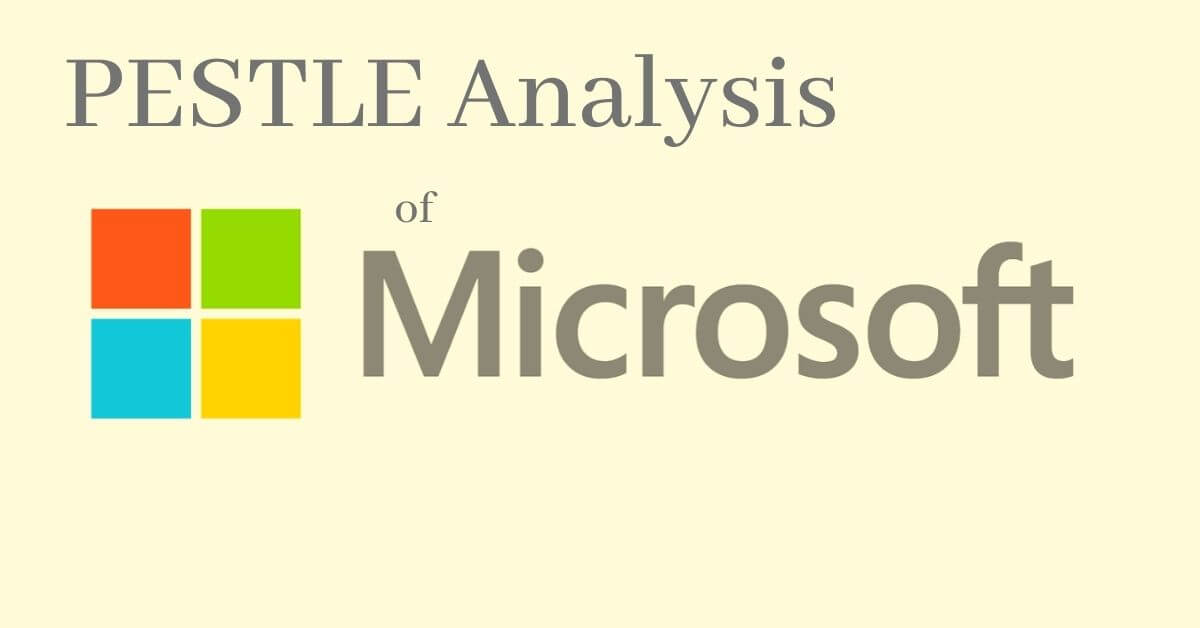Pestle analysis of Pepsi. PepsiCo is an American food and beverage manufacturing multinational company. Caleb Bradham was the founder of Pepsi and he established the brand in 1893 by the name of “Brad’s Drink.” Later he changed it into Pepsi-Cola in 1898, and it became Pepsi in 1961.
Some of the major products/services of Pepsi are Quaker Foods & Snacks, Cheetos, Mirinda, Doritos Tortilla Chips, Ruffles Potato Chips, 7 Up, Aquafina bottled water, Tropicana Beverages, Tostitos Tortilla Chips, Gatorade, Mist Twist, Lay’s Potato Chips, Frito Corn Chips, Mountain Dew, Walkers Potato Crisps, and Pepsi.
Currently, Pepsi has employed 267000 employees to manage various operations of the brand worldwide. The headquarter of the brand is situated in Harrison, New York.
According to a report by MacroTrend, Pepsi’s annual revenue was 68.557 billion dollars by the end of 2020, and it has risen 3.8%. Out of which the net profit of the brand was 7.041 billion dollars, and it has reduced 43.23%.
Some of the prominent competitors of Pepsi are Kraft Foods, Campbell Soup Company, Nestle, Conagra Brands, Unilever, Kellogg, Link Snacks, Red Bull, Monster Beverage, Coca-Cola, and General Mills.
Today, we’ll discuss the pestle analysis of Pepsi. We’ll focus on the macro-environmental issues that impact the growth of the carbonated soft drink and food snacks manufacturing company. if you want to learn about internal factors, check out the swot analysis of Pepsi. Here’s the pestle analysis of Pepsi;
Political Factors Affecting Pepsi
FDA Approved
Pepsi is one of the world’s most popular carbonated soft drinks after its only rival Coca-Cola. The company should follow the manufacturing rules and regulations set by the FDA (Federal Drug Authority). In fact, the FDA performs various tests on the beverages to check any impurities before launching them into the market.
Popular in India & China
Pepsi is a popular drink in the Indian and Chinese markets. It’s great news for the company that the Indian government has recently decreased corporate taxes by approximately 10%. It was 35%, and now they are 25%. It means that the brand would have more revenue.
US-China Trade Conflict
As we’re very well aware of the conflict between the Trump administration and the Chinese government, the US government was following the protectionism policies. She increased the tax rate on all the imports, exports, and trade with Chinese-made products. The purpose was to discourage imports improve the local industry and create more jobs for US citizens.
Hopefully, things will get back to normal under Joe Biden’s administration in 2021.
Brexit Deal
A major portion of Pepsi’s revenue comes from the US and EU markets. The separation of Britain from the European Union due to the Brexit deal would impact the company’s sales. Now, the brand has to change its marketing and business strategy. It’ll be different for the UK and the EU depending on their taxes, trade policies, and other regulations.
Health Regulation
The way public attitude is changing towards a healthy diet and lifestyle. They want a less sugary drink with fewer calories. The government and health organizations have a soft corner for healthier products. If it results in the form of health and diet regulations, the company would lose sales and market share.
Soda Tax
Some of the States in the US have introduced Soda Tax on carbonated soft drink companies like Pepsi and Coca-Cola. The soda tax increased the price by 3 cents per bottle. It started in Barkley in 2015, Philadelphia in 2017, and then in Boulder Colorado, Seattle in Washington, Oakland, and San Francisco. If other states start following the same trend, it would reduce Pepsi’s sales and revenue.
Economical factors Impacting Pepsi
Emerging Markets
Russia, India, Brazil, and China are the emerging markets of Pepsi. The company earns a reasonable amount of revenue from these markets. If the brand increases its focus in those markets with more promotion and marketing campaigns, it would increase the company’s sales and revenue.
Economic Crisis
The economic crisis has caused a global economic recession worldwide. It was because of the months of shutdown and lockdown of businesses. Many businesses went bankrupt and people lost their jobs as a result. The annual sales of Pepsi declined and the net profitability of the company was reduced by approximately 43.23% in 2020.
Sugared Tax
As we know PepsiCo is a multinational brand and operating its business across the world. The laws and regulations of different governments are different. For instance, the governments of Saudi Arabia and France have increased the taxes on sugar-containing beverages.
The increase in taxes is approximately 50% more on sugared beverages. Such an increase in the tax rate would reduce the sales and profitability of the company.
Exchange Rate
The currency exchange rate is also a very powerful factor impacting Pepsi’s revenue. For instance, if the currency of the exporting country is strong, it would reduce company profitability. Most importantly, the position of the dollar in the currency exchange market in other countries. l
Social Factors Affecting Pepsi
Target Demographic
The target demographic of Pepsi has always been young and it ranges from 15 to 44 ages of people. If the country’s population falls within this age, then it’s good for the marketing campaign. For instance, the number of elderly people in the Nordic nation in Sweden has increased, and less young population. The company has to retarget the market with suitable promotion and marketing campaigns relevant to the age group.
Controversial Advertisement
The advertisement and marketing campaign for Pepsi usually focus on the young audience. The company launched an advertising campaign in 2017 and Kendal Jenner was starring in it. The purpose of the ad was to focus on the “Black Lives Matter” movement and social atrocities committed against the black community.
The brand spent a lot of capital on the ad and it didn’t convey the exact message. The critics hailed the company for devaluing the whole movement. Pepsi has to issue a formal apology and pull down the ad after one day. The marketers and the PR team should be sensitive to such issues that their advertisement shouldn’t criticize any social group.
Healthy Diet Trend
A change in the customers’ lifestyle, purchasing behavior, and attitude affects the sales and revenue stream of the company. The food items and beverages of Pepsi contain a high level of sugar, salt, and fats. The customer market is avoiding these things and they prefer to buy healthier products. It’s good for the company.
Low Sugar Drinks
Pepsi has realized the customers’ changing trends towards a healthier diet and less sugary drinks. Now the company plans to introduce new products with less sugar in them. Peps would decrease the salt to 1.3%, 1.1% fats, and 12 ounces of sugar in 2025. Offering healthier products would increase the company’s sales and market share.
Technological Factors Impacting Pepsi
Tech Digital Marketing
Consistent marketing and advertisement campaigns are the keys to the success of any business. Pepsi should keep up with the latest tech digital marketing tools to stay in the market. Like the target marketing on Google, Facebook, and Instagram, they would help the company to reach the young audience on the new digital platforms.
Competitors’ brands like Coca-Cola and Nestle are using digital and social media marketing campaigns to reach more audiences.
Ad Campaign on YouTube
Pepsi launched an advertisement campaign on YouTube “Back to School” and it connected with the young audience. The song “School Khatam ho Raha ha Dosti nai” was so touching that it had more than 7.2 million views by the end of 2020. It helped the company to connect with the young audience.
E-commerce
The lockdown and shutdown of businesses have increased the influence of e-commerce and online shopping trends. Pepsi should exploit the current trends and launch its online shopping platform. It should allow users to connect with local retailers and order the drink.
Legal Factors Affecting Pepsi
Use of Pesticides
Carbonated soft drink companies like Coca-Cola and Pepsi could face serious legal issues by the usage of pesticides in their drinks. It’s because some people use these soft drinks as an alternative to killing pests in the fields.
Labor Laws
As we know PepsiCo is a multinational brand and the company is operating its business in different countries worldwide. The company has employed 267000 employees to manage various operations of the business across the globe. Therefore, the brand should be careful about the condition of labor in other countries. News like bad working conditions and unfair employee’ treatment could tarnish the company’s reputation.
Naked Juice Drink Lawsuit
CSPI (Center for Science in the Public Interest) filed a lawsuit against Pepsi’s brand Naked Juice on the misleading label issue in 2016. The brand agreed to revise the label. It claimed that the company is deceiving the public with wrongful labeling of the ingredients of Naked Juice.
Environmental affecting Pepsi
Paris Agreement 2016
In the Paris Agreement 2016 where different governments of the world have set up strict environmental regulations and heavy fines. Pepsi should be careful about environmental issues and it should use biodegradable plastic for the distribution of its products.
Plastic Bottles Waste
Pepsi uses plastic bottle packing for the distribution of its soft drinks and other food items. The use of unsustainable resources gives the impression that the company doesn’t care about the nature and environment.
People are becoming very conscious about the environment and nature. They don’t support any brand that pollutes the environment. According to an estimate,
Conclusion: Pepsi PESTLE Analysis Example Company
After a careful study of the pestle analysis of Pepsi, we have realized that Pepsi is indeed a leading soft drink manufacturing company after Coca-Cola. The company should decrease the sugar level, avoid legal issues, and use biodegradable bottles. Such steps would win the loyalty of customers; while paying heed on the external political, economic, social, technological, legal, and environmental factors.

Ahsan Ali Shaw is an accomplished Business Writer, Analyst, and Public Speaker. Other than that, he’s a fun loving person.


